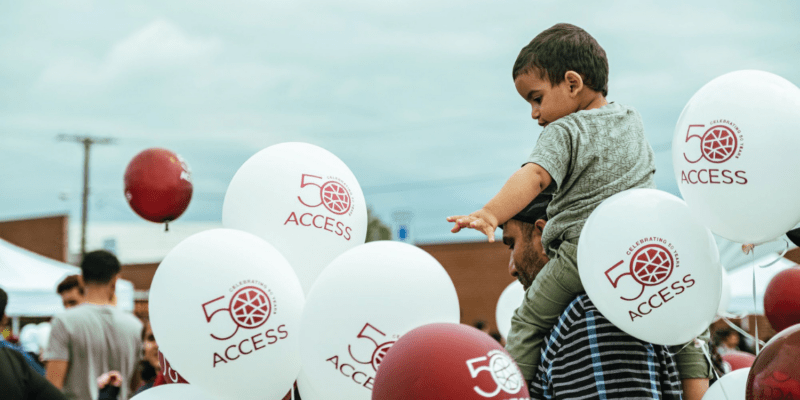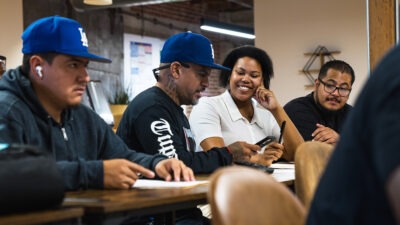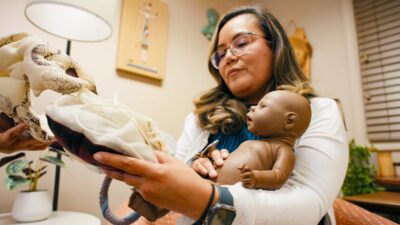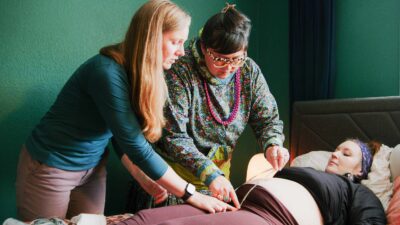Whether the experience involves an individual, organization or community, lasting transformation takes place from the inside out. For the next several weeks, we’re pulling lessons from our new Racial Equity Spotlight series. This set of three publications gives an insider’s view of a wide variety of WKKF grantee partners who are committed to transforming their internal practices and ways of being to strengthen their work in support of children and families.
In Brief
A powerful movement in racial equity practices has taken root in ACCESS—the Arab Community Center for Economic and Social Services. What began in 1971 as a group of community members organized to support Arab immigrants in Dearborn, Michigan, is now the largest Arab American community nonprofit in the nation and includes more than 120 programs serving Arab, Black, and Latinx families throughout the Detroit metro area.
It might be easy to assume that an organization of people who have experienced bigotry themselves and now work to serve marginalized communities would be immune from engaging in discrimination. In 2018, after having long focused on organizational responses to incidents of interpersonal racism in their community, an informal group of ACCESS staff members volunteered to study the organization’s internal equity practices. Yet some staff members were a little anxious about what they might discover.
Why It Matters
After a period of examination, the need to knock down structural racism within the organization soon became evident. ACCESS brought in the Center for Equity and Inclusion (CEI) for an intensive training in 2020, and the organization also hired an outside consultant to review its program outcomes.
As part of this reckoning, ACCESS staff members realized that certain aspects of their organization’s internal culture, staffing, and programming might be upholding the same injustices the organization wanted to dismantle: colorism, anti-Blackness and bias toward Arab clients and experiences. Committing to change from within helped the people at ACCESS learn to understand interpersonal, as well as larger-scale racism, as part of a collective experience, rather than separate and individual traumas.
The Opportunity
Long-standing service and advocacy organizations like ACCESS have a specific opportunity to engage organizations whose trust they have earned over decades of work. The assumption that self-declared anti-racist spaces are automatically nondiscriminatory can create blind spots that lead them to inadvertently adopt, internalize and perpetuate the same oppressive systems they have experienced. Because ACCESS had earned the trust of their partners in the community, they were able to openly examine difficult questions and move into a place of transformative dialogue.
If your organization wants to learn more about how to expand its own racial equity work into its partner nonprofits and service providers, read more about how the Arab Community Center for Economic and Social Services pursued its vision.








Comments